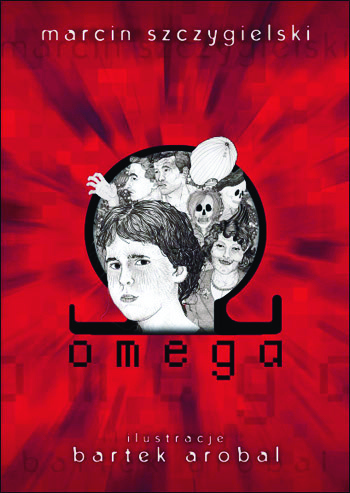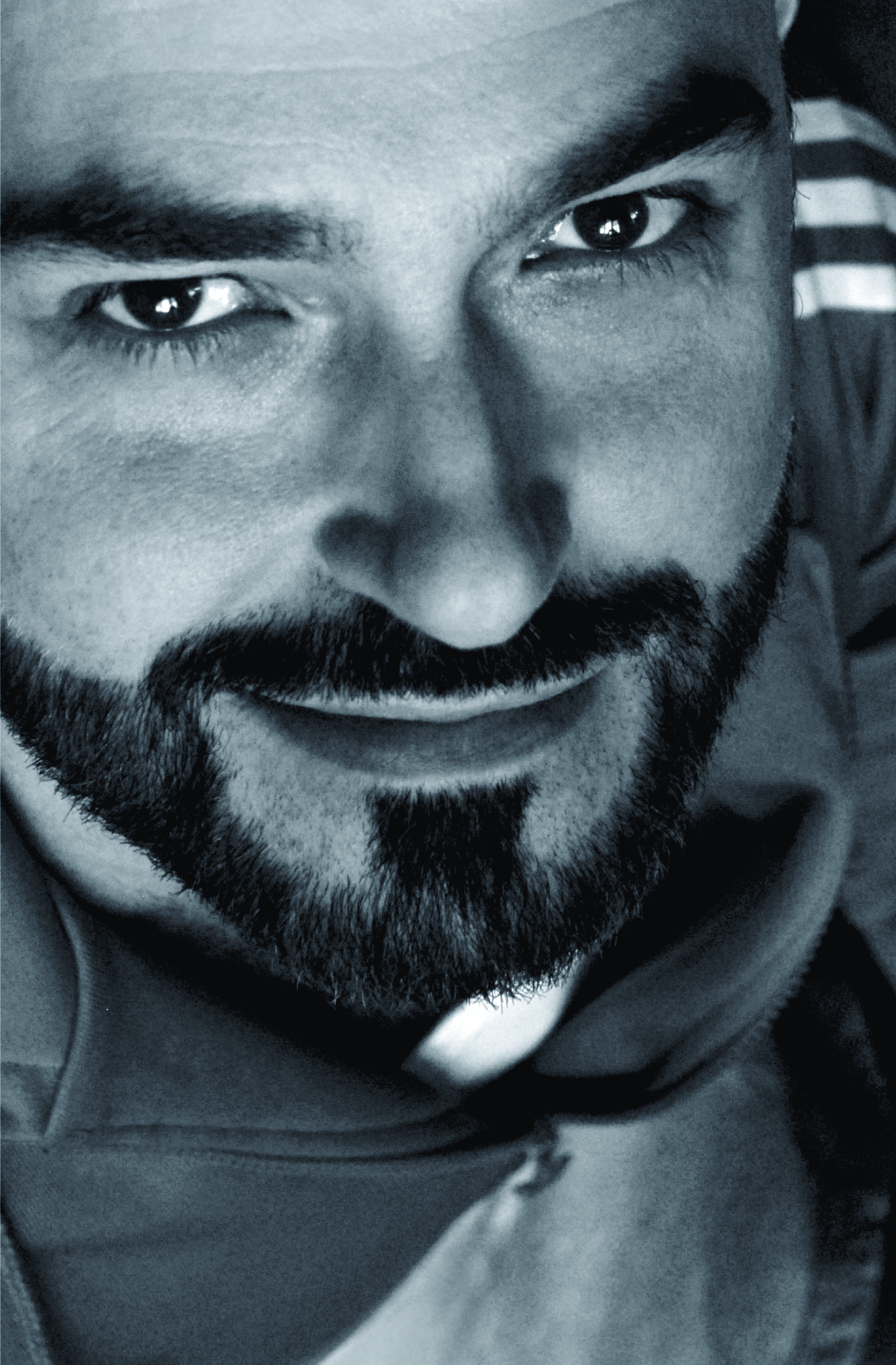Title of the work
Country of the First Edition
Country/countries of popularity
Original Language
First Edition Date
First Edition Details
Marcin Szczygielski, ill. Bartek Kociemba aka Arobal, Omega. Warszawa: Instytut Wydawniczy Latarnik im. Zygmunta Kałużyńskiego, 2009, 600 pp.
ISBN
Awards
2010 – Mention in the 2nd "Halina Skrobiszewska Children’s Literature Contest," organised by Warsaw Museum of Children’s Books, and addition of the novel to the Museum’s "Treasure List";
2010 – Mention in "The Most Beautiful Book of the Year" contest, organised by the Polish Association of Book Publishers;
2010 – Main literary award and the title of the "Book of the Year" for young adults awarded by the Polish Section of IBBY.
Genre
Bildungsromans (Coming-of-age fiction)
Fantasy fiction
Fiction
Novels
Target Audience
Crossover (Children and young adults – according to the Polish Section of IBBY: 11+)
Cover

Courtesy of the publisher.
Author of the Entry:
Maciej Skowera, University of Warsaw, mgskowera@gmail.com
Peer-reviewer of the Entry:
Elżbieta Olechowska, University of Warsaw, elzbieta.olechowska@gmail.com
Susan Deacy, University of Roehampton, s.deacy@roehampton.ac.uk

Portrait, courtesy of the Author.
Marcin Szczygielski
, b. 1972
(Author)
Writer, journalist, graphic and interior designer. Formerly artistic director of the Polish edition of Playboy magazine, creative director of Ahoj.pl, Gruner+Jahr Polska publishing house and Latarnik publishing house, Editor-in-Chief of Moje Mieszkanie (interior design magazine). A member of the Polish Writers Association. He debuted in 2003 with an adult novel PL–BOY. Dziewięć i pół tygodnia z życia pewnej redakcji [PL–BOY: Nine and a Half Weeks in the Life of a Certain Newsroom]. His career as an author for children and young adults begun in 2009 with Omega. Since the success of this book, he focused on writing for the juvenile audience. His later works for children and young adults are: Za niebieskimi drzwiami [Behind the Blue Door] (2010), Czarny młyn [The Black Mill] (2011), Arka czasu [Rafe and the Ark of Time] (2013), Teatr Niewidzialnych Dzieci [The Theatre of Invisible Children] (2016), Serce Neftydy [The Heart of Nephthys] (2017), and a fantasy novel cycle about Maja, which – by now – consists of: Czarownica piętro niżej [The Witch One Floor Down] (2013), Tuczarnia motyli [Butterfly Feedlot] (2014), Klątwa dziewiątych urodzin [The Curse of the Ninth Birthday] (2016), and Bez piątej klepki [With One Loose Screw] (2018). He is one of the most popular and critically acclaimed contemporary Polish children’s authors. He received an outstanding number of awards in various literary competitions, such as: Halina Skrobiszewska Children’s Literature Contest, Astrid Lindgren Literary Contest, the Polish Section of IBBY’s Book of the Year competition, or Warsaw Literary Prize in Poland, and Jury of Young Readers contest in Germany. He was also longlisted for the Hans Christian Andersen Award 2018, one of the most prominent international prizes for children’s authors.
Sources:
"Marcin Szczygielski: Author – Poland”, Bookbird 55.4 (2017): 31.
"Marcin Szczygielski" [biography], in Marcin Szczygielski, Omega, Warszawa: Instytut Wydawniczy Latarnik im. Zygmunta Kałużynskiego, 2009, 3.
Marcin Szczygielski, available online at latarnik.com (accessed: February 23, 2018).
Bio prepared by Maciej Skowera, University of Warsaw, mgskowera@gmail.com
Translation
Although Omega has not been translated into English yet, a short excerpt from the book, translated by Antonia Lloyd-Jones, is available at eurolitnetwork.com (accessed: July 11, 2018).
Summary
Based on: Katarzyna Marciniak, Elżbieta Olechowska, Joanna Kłos, Michał Kucharski (eds.), Polish Literature for Children & Young Adults Inspired by Classical Antiquity: A Catalogue, Faculty of “Artes Liberales”, Warsaw: University of Warsaw, 2013, 444 pp.
In contemporary Warsaw, Joanna, a young girl from a broken family, who calls herself Omega, spends most of her time at the computer. On her 12th birthday, Omega receives an e-mail that links to a mysterious game. When she installs it, the application absorbs her into its world – a grotesquely transformed Warsaw. The girl must finish the game if she wants to return to her reality. Her companion is a talking infant (the Child) who joins her at the beginning of her journey. Omega visits many places referring to various literary and cultural phenomena: a house made of meat, a cemetery inhabited by zombies or a werewolves’ castle and some alternate versions of Warsaw neighbourhoods, such as Stadion Dziesięciolecia (the 10th-Anniversary Stadium, now the National Stadium) where a preposterous sports event takes place, or a shopping centre Cascades of Gold (a bizarre version of Złote Tarasy [Golden Terraces] – Warsaw’s huge shopping mall). After completing each quest, Omega grows intellectually and her companion – the infant – grows up physically. At the end of the book it is revealed that the Child is the girl’s evil double. She defeats her double and comes back to her reality, more mature and with an integrated personality.
Analysis
The main character’s nickname and the novel’s title – Omega – allude to the last letter of the Greek alphabet* and symbolically an ultimate end, a total fulfillment and a definitive limit. In Szczygielski’s book, this word refers to the fulfillment of a specific rite of passage by the heroine and the end of her childhood – the protagonist’s initiation process, as Weronika Kostecka (2016, 343**) writes, lies in the fight for her individuality.*** The unique moniker is particularly important here, as Omega chooses it instead of using her given name, Joanna (which is a very common name in Poland and, therefore, refers to sameness and unification). This is to express the girl’s need to, as Kostecka (2016, 343) puts it, “shape her own autonomy.”
In the novel, we also witness an event called The Olympiad [sic! – M.S.] of Senses which refers to the idea of ancient Greek Olympic Games. These games, in which Omega has to compete many times in the book, are one of the stages of her peregrination through an alternate Warsaw which she must complete in order to defeat her evil double and overcome the pains of childhood. Initially Omega, blinded by the vision of victory, tries to win successive competitions (referring to her personality and the events from her life) – and she fails four times. She cannot understand why this happened. The girl succeeds only after the fifth time, when she realizes that – contrary to "real" Olympics – her goal is not to win successive competitions against the representatives of particular groups (the "Omnipotent Corporation," the "City’s Bedroom," the "Suburban Boundaries," and the "Intellectual Valley"). During the last competition, she doesn’t try to fight anyone but, basing on her own skills and experiences, does her best in struggling with her own self – which, in a way, corresponds to Henri Didon’s hendiatris: Citius, Altius, Fortius, which, proposed by Pierre de Coubertin in 1894, became the official motto of the modern Olympic Movement.
Omega as a heroine could also be seen as an incarnation of Odysseus (note: the allusion is not direct). The girl’s journey resembles the hero’s adventures: both have to deal with adversity in different fantastic locations inhabited by odd creatures before they are able to come back home and to take their rightful places there – the hero by winning the contest of the bow and slaughtering the suitors, and the girl by finishing The Olympiad of Senses and defeating her evil double, the Child. It also interesting that Kostecka (2016, 343) calls Omega “a 21st-century Bildungsroman.” One of the most widely known early examples of the genre, a prototypical Bildungsroman, was François Fénelon’s Les Aventures de Télémaque [The Adventures of Telemachus] (1699), in which the travels of Odysseus’s son, Telemachus, were recounted.
* It may also be interpreted as alluding to the expression I am the alpha and the omega from the Book of Revelation (1:8, 21:6, and 22:13), which refers to God as the beginning and the end.
** See: Weronika Kostecka, (Po)nowoczesne przestrzenie popkultury. Studium przypadku: "Omega" Marcina Szczygielskiego [(Post)modern Spaces of Popculture. A Case Study: "Omega" by Marcin Szczygielski], in Geografia krain zmyślonych. Wokół kategorii miejsca i przestrzeni w literaturze dziecięcej, młodzieżowej i fantastycznej [The Geography of Imaginary Lands: Place and Space in Children’s, Young Adult, and Fantasy Literature], Weronika Kostecka and Maciej Skowera, eds., Warszawa: Wydawnictwo SBP, 2016, 337–350.
*** All quotations translated by Maciej Skowera.
Further Reading
#RivetingReviews: Antonia Lloyd-Jones reviews Omega by Marcin Szczygielski, available at eurolitnetwork.com (accessed: July 11, 2018).
Kostecka, Weronika, “(Po)nowoczesne przestrzenie popkultury. Studium przypadku: Omega Marcina Szczygielskiego” [(Post)modern Spaces of Popculture. A Case Study: Omega by Marcin Szczygielski], in Weronika Kostecka and Maciej Skowera, eds., Geografia krain zmyślonych. Wokół kategorii miejsca i przestrzeni w literaturze dziecięcej, młodzieżowej i fantastycznej [The Geography of Imaginary Lands: Place and Space in Children’s, Young Adult, and Fantasy Literature], Warszawa: Wydawnictwo SBP, 2016, 337–350.
“Marcin Szczygielski: Author – Poland,” Bookbird 55.4 (2017): 31.


